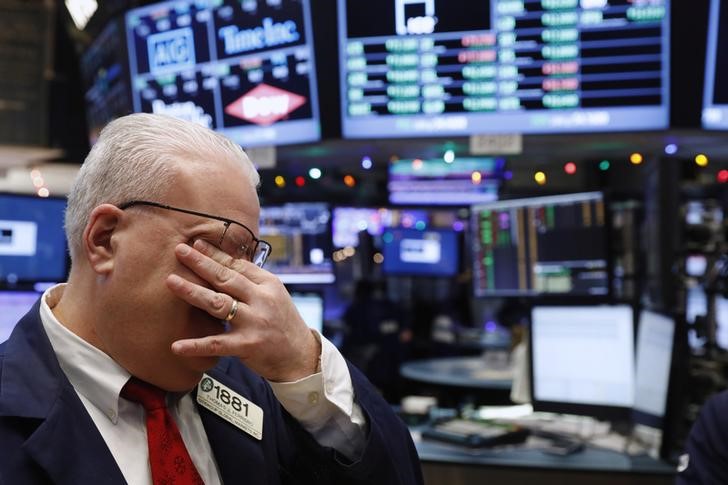The stock market crash wiped out more than $9 trillion in wealth from American households. It has put more pressure on balance sheets and household spending.
Americans’ holdings of corporate equities and mutual fund shares fell to $33 trillion at the end of the second quarter, up from $42 trillion at the start of the year, according to Federal Reserve data.
With major market indices falling further since early July and the bond market posting further losses, market experts believe the current market losses could range between $9.5 trillion and $10 trillion.

Americans’ holdings of corporate equities and mutual fund shares fell to $33 trillion at the end of the second quarter, down from $42 trillion at the start of the year.
Economists say the declines could soon weigh on the economy. This will put pressure on Americans’ balance sheets and potentially affect spending, borrowing and how families invest. Mark Zandi, chief economist at Moody’s Analytics, said the losses could shave almost 0.2 percentage points off real GDP growth next year. “The stock market fortune loss suffered so far, if sustained, will be a small but significant drag on consumer spending and economic growth in the coming months,” Zandi said.
The wealthy are bearing the largest losses since they own an outsize share of stocks. The top 10% of Americans have lost more than $8 trillion in stock market assets this year, a 22% decline in their stock market assets, according to the Federal Reserve. The top 1% have lost more than $5 trillion in stock market assets. The bottom 50% have lost about $70 billion in equity wealth.

With major market indexes falling further since July, experts say losses from financial markets could total $9.5 trillion to $10 trillion.
The losses mark a sudden and massive turnaround for shareholders, who have seen record value creation from stocks since the pandemic. From the market lows of 2020 to the peak at the end of 2021, America’s stock wealth nearly doubled, from $22 trillion to $42 trillion. The bulk of that wealth went to those at the top, since the wealthiest 10% of Americans own 89% of individually held stocks, according to the Federal Reserve.
Most of that wealth went to those at the top, as the richest 10% of Americans own 89% of private stock, according to the Federal Reserve. The richest 1% owned 31% of the country’s household wealth at the end of the second quarter, up from 32.3% at the start of the year. % fell from 69% to 68%.
As Americans have grown richer from rising home prices, the gains have been more than offset by stock market losses. America’s housing wealth rose by $3 trillion in the first half of the year to $41 trillion. The gain is only about a third of the amount lost in the stock market. However, as mortgage rates rose, home prices began to decline or cool in many markets, like in early 2020.

Economists say the drops could add pressure to Americans’ balance sheets and possibly hurt spending.
While the stock markets have seen the largest percentage declines, this year’s stock falls are among the largest in dollar terms. The drop in stock wealth also far exceeds the $6 trillion in quarterly stock losses during the beginning of the pandemic in 2020. While stock markets have seen larger drops on a percentage basis, this year’s stock losses are among the largest ever on a dollar basis.
The question now is how much of an impact the fall in inventories will have on consumer spending. So far there has been little evidence that wealthy consumers have cut back on spending. They could have an impact soon, especially if the market declines continue.
Zandi said the loss of US stock market assets could cut consumer spending by $54 billion next year.
Yet, he added that the “stock market wealth effect” is less than in the past. The wealthy own a large chunk of the stocks and “have accumulated significant excess savings during the pandemic.” So much that they don’t feel compelled to save more as their stock wealth dwindles,” he said.
